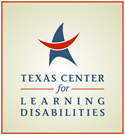Description
Interested in Identification for Students With Dyslexia?
In this article, Drs. Jeremy Miciak and Jack Fletcher address the “nature of dyslexia and best practices for identification and treatment within the context of multi-tier systems of support (MTSS). [They] review proposed definitions of dyslexia [and] empirical evidence for proposed definitional attributes, focusing on key sources of controversy, including the role of IQ, instructional response, as well as issues of etiology and immutability. [They] argue that current empirical evidence supports a dyslexia classification marked by specific deficits in reading and spelling words combined with inadequate response to evidence-based instruction. [The authors] then propose a ‘hybrid’ dyslexia identification process built to gather data relevant to these markers of dyslexia [arguing] that this assessment process is best implemented within school-wide MTSS because it leverages data routinely collected in well-implemented MTSS, including documentation of student progress and fidelity of implementation. In contrast with other proposed methods for LD identification, the proposed hybrid method demonstrates strong evidence for valid decision-making and directly informs intervention.”
Check out the preprint version of the article below.
Citation
Miciak, J., & Fletcher, J. M. (2020). The critical role of instructional response for identifying dyslexia and other learning disabilities. Journal of Learning Disabilities. Advance online publication. doi:10.1177/0022219420906801
